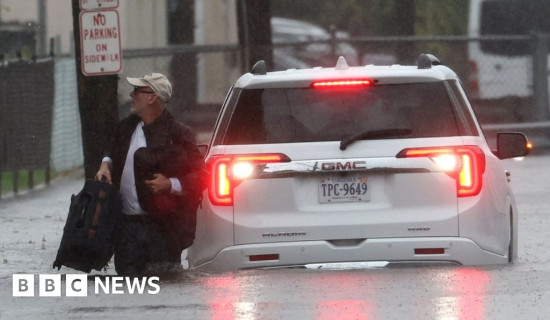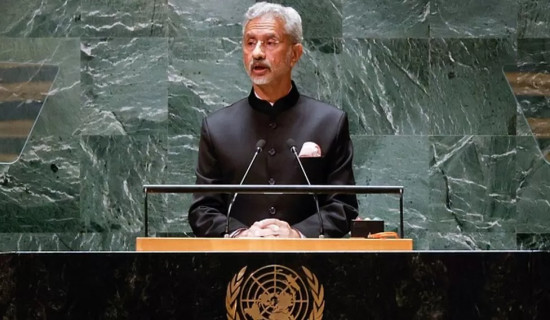- Monday, 23 February 2026
123,000 displaced in Gaza due to fear and destroyed homes - UN
The United Nations says 123,538 people in Gaza have been internally displaced, mostly "due to fear, protection concerns and the destruction of their homes". The Office for the Coordination of Humanitarian Affairs (OCHA) added that 73,000 people are sheltering in schools.
Warmest September in history as 'gobsmacking' data shocks scientists
By Matt McGrath & Mark Poynting, Oct 5: The world's September temperatures were the warmest on record, breaking the previous high by a huge margin, according to the EU Climate Service.Last month was 0.93C warmer than the average September temperature between 1991-2020, and 0.5C hotter than the previous record set in 2020.Ongoing emissions of warming gases in addition to the El Niño weather event are driving the heat, experts believe.Some scientists said they were shocked by the scale of the increase.They say 2023 is now "on track" to be the warmest on record.September's high mark comes in the wake of the hottest summer on record in the northern hemisphere as soaring temperatures show no signs of relenting.The data, from the Copernicus Climate Change Service, shows that the month had the biggest jump from the long-term average in records dating back to 1940.Scientists have been quite shocked by some of the details in the data."This month was, in my professional opinion as a climate scientist - absolutely gobsmackingly bananas," Zeke Hausfather, an experienced researcher, wrote on X formerly known as Twitter.Beating a long-term recent average by almost a degree is bad enough, but this masks even greater differences in some parts of the globe. In Europe, for example, the scale of heating was remarkable, beating the long-term average by 2.51C."The unprecedented temperatures for the time of year observed in September - following a record summer - have broken records by an extraordinary amount," said Dr Samantha Burgess, Deputy Director of the Copernicus Climate Change Service (C3S).One important measure that climate researchers look to is the difference between current temperatures and what they were before the widespread use of fossil fuels.Last month was around 1.75C above the temperatures during this so-called pre-industrial period - the highest figure for a single month ever recorded.This will cause a good deal of unease among researchers.Political leaders meeting in Paris in 2015 agreed to try and hold the rise in global temperatures under 1.5C this century.September's figure isn't a breach of that agreement, because the Paris target refers to decades not months. But it is undoubtedly a worrying direction of travel.Scientists believe that this year as a whole will stay under that 1.5C limit, but 2023 is "on track" to become the warmest on record, according to Copernicus. The year to the end of September shaded the current warmest year, 2016, by 0.05C as the hottest ever.Extreme heat has continued into October, smashing monthly high records in many locations including in Spain.Global temperatures may surge even further above normal as the El Niño weather event is yet to peak.El Niño forms part of the El Niño Southern Oscillation - the dominant natural mode of global climate variability on Earth on seasonal or year-to-year timescales. During El Niño events, warm water comes to the surface in the East Pacific, releasing additional heat into the atmosphere.This is one of the reasons for surging global temperatures - when added to the long-term warming caused by humans, mainly from fossil fuel burning releasing planet-warming greenhouse gases.Experts believe the scale of heating puts new pressure on politicians to act, as they prepare to gather for the COP28 climate summit at the end of November."Two months out from COP28, the sense of urgency for ambitious climate action has never been more critical," Dr Burgess said.
Race against time to save 102 missing in India floods
Indian authorities are racing against time to rescue people after flash floods in the northeastern state of Sikkim left 102 missing, including 22 army personnel. The state government said 14 people also died after a cloudburst over a lake triggered massive floods.
2030 World Cup: Tournament to be held across six countries in three continents
Spain, Portugal and Morocco have been named as the co-hosts, with the opening three matches taking place in Uruguay, Argentina and Paraguay.
Pakistan orders 1.7 million Afghans out of country
Pakistan's government has ordered all unauthorised Afghan asylum seekers - an estimated 1.7 million people - to leave the country by November. A spike in militant attacks along the two countries' border this year has escalated tensions.
At least 21 dead as Venice bus plunges from bridge
At least 21 people including four children have died after a bus crashed off a flyover near Venice and caught fire, officials say. The bus broke through a barrier and plunged near railway tracks in the district of Mestre, which is connected to Venice by a bridge.
Nobel Prize rewards physics on a 'tiny timescale'
This year's Nobel Prize in Physics rewards experiments with light that capture "the shortest of moments". The award goes to Pierre Agostini, Ferenc Krausz and Anne L'Huillier.
Delhi police raid homes of prominent journalists
Police in India have raided the homes of several prominent journalists and authors in connection with an investigation into the funding of the news website NewsClick. The searches took place on Tuesday in the capital Delhi, and those raided had their mobiles and laptops seized.
Nobel Prize won by mRNA Covid vaccine scientists
The Nobel Prize in Physiology or Medicine has been awarded to a pair of scientists who developed the technology that led to the mRNA Covid vaccines. Dr Katalin Kariko and Dr Drew Weissman will share the prize.
Ten dead after Mexico church roof collapse
Nine people are reported to have been killed and some 20 others trapped after a church roof collapsed in Mexico. Local media said 49 people were taken to hospital, after the collapse at Santa Cruz church in Ciudad Madero.
State of emergency in New York over flash flooding
A state of emergency has been declared in New York City as strong storms bring flash flooding. Many of the city's subway systems, streets and highways have flooded, while at least one terminal at LaGuardia Airport closed on Friday before later reopening.
Nearly 1,000 people die of dengue in Bangladesh
Nearly 1,000 people have died of dengue in Bangladesh in recent weeks, in what authorities say is the country's most severe outbreak of the disease yet. Extraordinarily wet monsoons have made it easier for mosquitoes that carry the dengue virus to breed in dirty and stagnant water.
Trump committed fraud in New York, judge finds
Donald Trump committed fraud by repeatedly misrepresenting his wealth by hundreds of millions of dollars, a New York judge has ruled. The ruling, part of a civil case brought against the former president and his family business, said he defrauded banks and insurers for years.
India asks Canada for evidence on Sikh murder
India is open to looking into any "specific" information Canada provides on the killing of a Sikh separatist leader, the country's foreign minister said. S Jaishankar was referring to the murder of Hardeep Singh Nijjar in Canada in June.
Thousands flee Karabakh over ethnic cleansing fear
A growing stream of ethnic Armenian refugees are fleeing Nagorno-Karabakh following Azerbaijan's seizure of the disputed region last week. More than 13,000 people have so far crossed into Armenia from the enclave, which is home to a majority of some 120,000 ethnic Armenians.




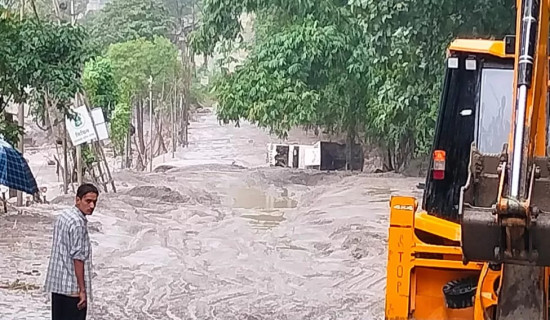

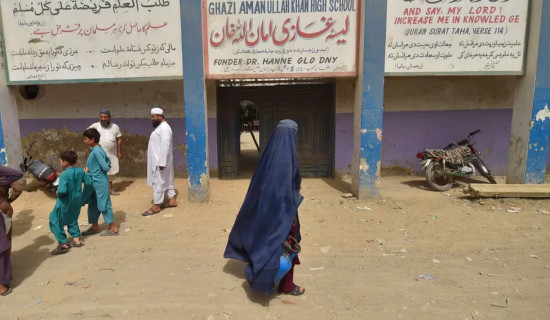


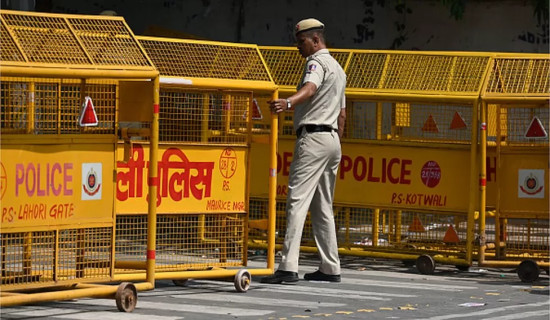
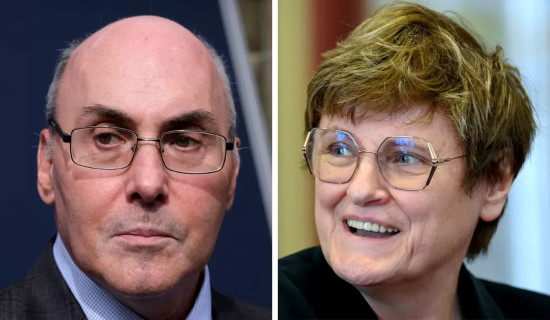
-original-thumb.jpg)
